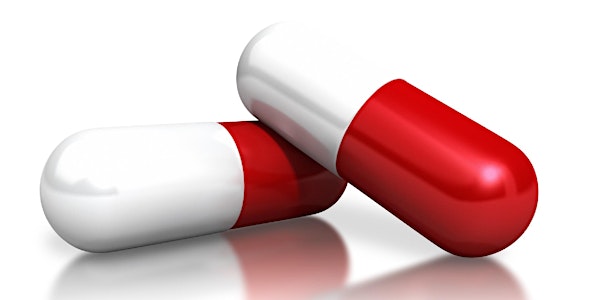
Psychopharmacology Update: 2017
Date and time
Location
The Conference Center at Sheppard Pratt
6501 North Charles Street Baltimore, MD 21204Refund Policy
Description
About The Program:
Mood disorders are complex conditions. They are challenging to diagnose even for experienced health care professionals. Delays in diagnosis and treatment lead to poor outcomes for patients as they suffer from effects on mental and physical health. About 30% of people report depression as one of their symptoms when they see their doctor. But fewer than 10% actually have severe depression. Nearly 4% of the U.S. population have a bipolar disorder. We are honored to welcome several national thought leaders and investigators in mood disorders to present on this topic.
Agenda:
8:30AM Breakfast and Registration
9:00AM The Problem of Psychiatric Diagnosis: Still a long way from biology - Scott Aaronson, M.D.
10:00AM Management of Mood & Anxiety Disorders in Pregnancy and Lactation - Lauren Osborne, M.D.
11:00AM Break
11:15AM Recognition of Childhood Onset Bipolar Disorders - Robert Post, M.D.
12:15PM Lunch
1:15PM Psychosis and Schizophrenia in Clinical Practice - David Pickar, M.D.
2:15PM Break
2:30PM Neurostimulation 2017: ECT, TMS & VNS - Scott Aaronson, M.D.
Speaker Information:
Scott Aaronson, M.D. - Dr. Aaronson specializes in treatment-resistant affective disorders. He is a thought leader in the areas of biological psychiatry, diagnosis and the integration of somatic and psychological therapies. He is the principal investigator for multiple studies on the development of novel therapies for mood, anxiety and psychotic disorders. Dr. Aaronson currently serves as a Clinical Assistant Professor of Psychiatry at the University of Maryland School of Medicine and is also the Associate Medical Director and Director of Clinical Research at The Retreat at Sheppard Pratt.
Lauren Osborne, M.D. - Dr. Osborne is the Assistant Director at Johns Hopkins Women's Mood Disorders Center. She graduated from Weill Cornell Medical College and received her training at Columbia University/New York State Psychiatric Institute. She completed both clinical and research fellowships in women's mental health, and is an expert on the diagnosis and treatment of mood and anxiety disorders during pregnancy, the postpartum, the premenstrual period, and perimenopause.
Robert Post, M.D. - Dr. Post founded the International Stanley Foundation Bipolar Network (now the Bipolar Collaborative Network). Throughout his career, including 35 years at the NIMH, and 20 of those as Chief of the Biological Psychiatry Branch, Dr. Post has focused on bettering the understanding and treatment of refractory unipolar and bipolar illness. Currently, he is in private practice and attempting to address childhood-onset bipolar illness.
David Pickar, M.D. - Dr. Pickar is Adjunct Professor of Psychiatry at Johns Hopkins University School of Medicine. He served in the Intramural Research Program (IRP) of the National Institute of Mental Health (NIMH) for over 20 years where he was the Chief of the Experimental Therapeutics Branch dedicated to studying schizophrenia and psychosis. Dr. Pickar is Founder and President of Gabriel Sciences, a company whose mission is advancing the development of a novel treatment for schizophrenia. He practices psychiatry in Chevy Chase, Maryland.
Goals & Objectives:
At the conclusion of the program, the participant should be able to:
-
Know the literature on more childhood onset bipolar disorder in the US and understand the vulnerabilities and risk factor for it
-
Become aware of the progressive nature of bipolar disorder driven by epigenetic mechanisms.
-
Define risks of untreated psychiatric illness during and after pregnancy
-
Define risks and benefits of psychiatric medication during and after pregnancy
-
Identify at least two treatment alternatives for mood and anxiety disorders during and after pregnancy.
-
Recognize variants in the presentation of depression and when symptoms suggest treatment is needed for bipolar disorder
-
Create the treatment paradigm for the longterm management of difficult to treat depression using neurostimulation.
-
Describe the developments seen with the introduction of new second generation antipsychotics
Accreditation/Designation Statements
This activity has been planned and implemented in accordance with the accreditation requirements and policies of the Accreditation Council for Continuing Medical Education through the joint sponsorship of American Psychiatric Association (APA) and Maryland Psychiatric Society (MPS). The APA is accredited by the ACCME to provide continuing medical education for physicians. The APA designates this live activity for a maximum of 5 AMA PRA Category 1 Credit(s) TM. Physicians should claim only the credit commensurate with the extent of their participation in the activity.
This activity is approved for a maximum of 5 hours of Category I Continuing Education for Social Workers by the Maryland Board of Social Workers.
This activity is approved for a maximum of 5 hours of Continuing Education for Psychologists by the Maryland Board of Examiners for Psychologists.
Fees are non-refundable.